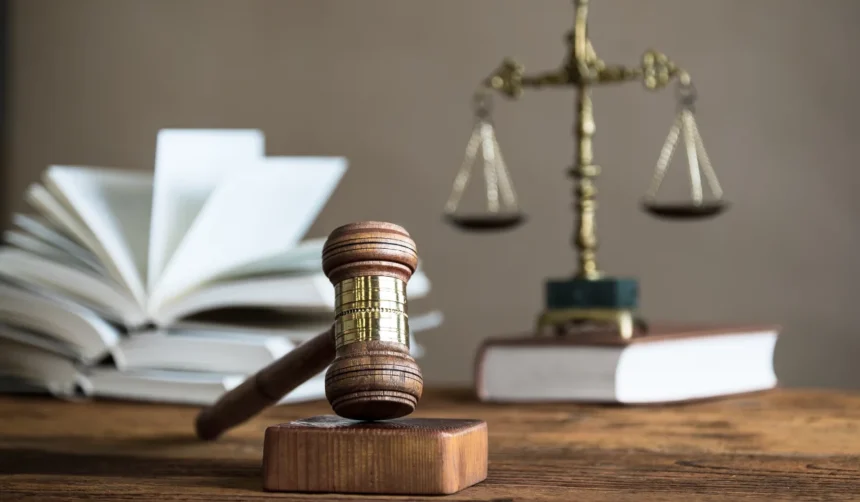Introduction to https://noticviralweb.blogspot.com/2024/04/consejos-de-un-abogado.html
Navigating the world of personal injury law can feel overwhelming, https://noticviralweb.blogspot.com/2024/04/consejos-de-un-abogado.html especially when you’re dealing with the aftermath of an accident. Whether it’s a slip and fall incident or a more complex case involving medical negligence, understanding your rights is crucial. That’s where experienced attorneys come into play. They not only advocate for your interests but also guide you through the legal maze that follows an injury. If you’re looking to learn how to protect yourself and secure proper compensation, you’ve landed in the right place. This comprehensive guide provides valuable insights from seasoned professionals on what steps to take after sustaining an injury, how to choose the right attorney, and much more. Let’s dive in!
The Role of an Attorney in a Personal Injury Case
An attorney plays a crucial role in navigating the complexities of personal injury cases. They serve as advocates for clients, ensuring their rights are protected throughout the legal process.
From the moment an injury occurs, an attorney steps in to provide guidance. They gather evidence, interview witnesses, and build a strong case that reflects the client’s experiences. This thorough preparation is essential for presenting claims effectively.
Attorneys also negotiate with insurance companies on behalf of their clients. Their experience enables them to secure fair compensation without victims feeling overwhelmed or pressured.
In court, attorneys represent their clients passionately. They articulate arguments clearly and respond adeptly to opposing counsel’s strategies.
Having skilled legal representation can significantly impact the outcome of a personal injury case. It brings peace of mind during challenging times while focusing on recovery and well-being.
Types of Personal Injury Cases
Personal injury cases come in various forms, each with its unique circumstances and legal nuances. One common type involves car accidents, where negligence often leads to serious injuries.
Another prevalent category is slip and fall incidents. These can occur in public places or private properties due to unsafe conditions like wet floors or uneven sidewalks.
Medical malpractice cases arise when healthcare professionals fail to provide the standard of care, resulting in harm to patients. This includes errors during surgery or misdiagnosis of conditions.
Product liability claims focus on defective products that cause injury, holding manufacturers accountable for their creations.
Workplace injuries encompass accidents occurring within a work environment, often leading to complex workers’ compensation claims. Each case requires a tailored approach based on the specific facts involved.
How to Choose the Right Attorney for Your Case
Choosing the right attorney can feel overwhelming, but a few key steps can simplify the process. Start by identifying your specific needs. Are you dealing with a car accident or perhaps medical malpractice? Different attorneys specialize in various areas.
Next, seek recommendations from friends or family who have had similar experiences. Online reviews and ratings provide additional insights into an attorney’s reputation.
Once you have a shortlist, schedule consultations. Many attorneys offer free initial meetings where you can discuss your case and assess their expertise. Pay attention to how they communicate; clear and responsive communication is crucial for a successful partnership.
Don’t forget to inquire about fees upfront. Understanding their billing structure helps avoid surprises later on. Trust your instincts—choose someone you feel comfortable with and confident in representing your interests effectively.
Steps to Take After Sustaining an Injury
Sustaining an injury can be overwhelming. When it happens, staying calm is crucial.
First, seek medical attention. Your health should always come first. Even if your injuries seem minor, a professional evaluation is important to rule out any serious issues.
Next, document everything related to the incident. Take photos of the scene and gather contact information from witnesses. This evidence will be invaluable later on.
Notify your employer or the relevant authorities about the injury as soon as possible. Timely reporting helps establish a formal record.
Keep detailed records of all medical treatments and expenses incurred due to your injury. This documentation supports your case for compensation down the line.
Consider consulting with an attorney who specializes in personal injury cases. Their expertise can guide you through complex legal waters and ensure you receive fair treatment.
Understanding Compensation and Damages in a Personal Injury Case
Understanding compensation in a personal injury case is crucial for victims seeking justice. Damages can be categorized into two main types: economic and non-economic.
Economic damages cover tangible losses, such as medical expenses, lost wages, and property damage. These are typically easier to quantify since they involve bills and financial records.
Non-economic damages address the emotional toll of an injury. This includes pain and suffering, loss of enjoyment of life, and mental anguish. Valuing these can be subjective but plays a significant role in overall compensation.
Punitive damages may also come into play if the defendant acted with gross negligence or malicious intent. These aim to punish the wrongdoer rather than compensate the victim directly.
Navigating this landscape requires understanding both your rights and what you’re entitled to receive after facing an injury. It’s essential to work closely with your attorney to ensure all aspects are considered during settlement discussions.
Importance of Seeking Legal Advice from an Attorney
Navigating the aftermath of an injury can be overwhelming. Seeking legal advice from an attorney is crucial during this challenging time.
An experienced attorney brings a wealth of knowledge to your case. They understand the intricacies of personal injury law and can identify potential legal issues you might overlook.
Moreover, attorneys provide clarity on your rights and options. This guidance empowers you to make informed decisions tailored to your situation.
Having professional support also strengthens your negotiation position with insurance companies. Attorneys are skilled negotiators who know how to advocate for fair compensation on your behalf.
Consulting with a lawyer early in the process helps preserve critical evidence related to your case. This proactive approach often leads to more favorable outcomes down the line.
Common Mistakes to Avoid in a Personal Injury Case
One of the most common mistakes in a personal injury case is failing to seek medical attention promptly. Delays can not only worsen your condition but also weaken your claim.
Another pitfall is providing statements to insurance adjusters without legal advice. These representatives often aim to minimize payouts, and anything you say could be used against you later.
Ignoring deadlines is crucial too. Each state has specific statutes of limitations for filing claims. Missing these deadlines can end your chances for compensation altogether.
Many individuals underestimate the importance of documentation. Keeping detailed records of medical treatments, expenses, and communication with all parties involved strengthens your case significantly.
Don’t settle too quickly. Insurance companies may pressure you into accepting a low offer before you fully understand the extent of your injuries or losses. Always weigh any settlement carefully with professional guidance first.
Conclusion and Final Thoughts on Hiring an Attorney for Your
Choosing to hire an attorney can be a pivotal step in your personal injury journey. It’s essential to have someone knowledgeable by your side who understands the intricacies of the law.
An experienced attorney not only navigates legal complexities but also advocates fiercely for your rights. They assess your case thoroughly and provide guidance tailored to your individual situation.
Communication plays a crucial role throughout this process. A good lawyer ensures you feel informed and supported every step of the way. Trust is key, as it builds confidence in their ability to represent you effectively.
Understanding when and why to seek legal counsel empowers you as a client. The right attorney can make all the difference in achieving a favorable outcome for your case. Your recovery deserves dedicated attention, so don’t hesitate to reach out for professional support when needed.
FAQs
Navigating the complexities of personal injury cases can be daunting. Here are some common questions that might help clarify your understanding and decision-making process.
Q: What should I do immediately after an injury?
A: Seek medical attention first. Document everything related to the incident, including photographs, witness statements, and any relevant details.
Q: How long do I have to file a personal injury claim?
A: The timeframe varies by state but often ranges from one to three years. It’s crucial to act promptly as evidence can deteriorate over time.
Q: Can I still get compensation if I was partly at fault?
A: Yes, many jurisdictions allow you to recover damages even if you share some responsibility for the accident. However, your compensation may be reduced based on your percentage of fault.
Q: What types of damages can I claim in a personal injury case?
A: You may seek various forms of compensation such as medical expenses, lost wages, pain and suffering, emotional distress, and more depending on the specifics of your case.
Q: Do all personal injury cases go to trial?
A: Most cases settle before reaching trial. However, having an attorney who is prepared for litigation can strengthen your negotiating position significantly.
Q: Is it necessary to hire an attorney for my case?
A: While it’s not mandatory, hiring an experienced attorney increases your chances of securing fair compensation due to their knowledge and negotiation skills in dealing with insurance companies.
Understanding these aspects will empower you when pursuing a personal injury claim. Seeking legal advice early on could make all the difference in achieving a favorable outcome for your situation.








